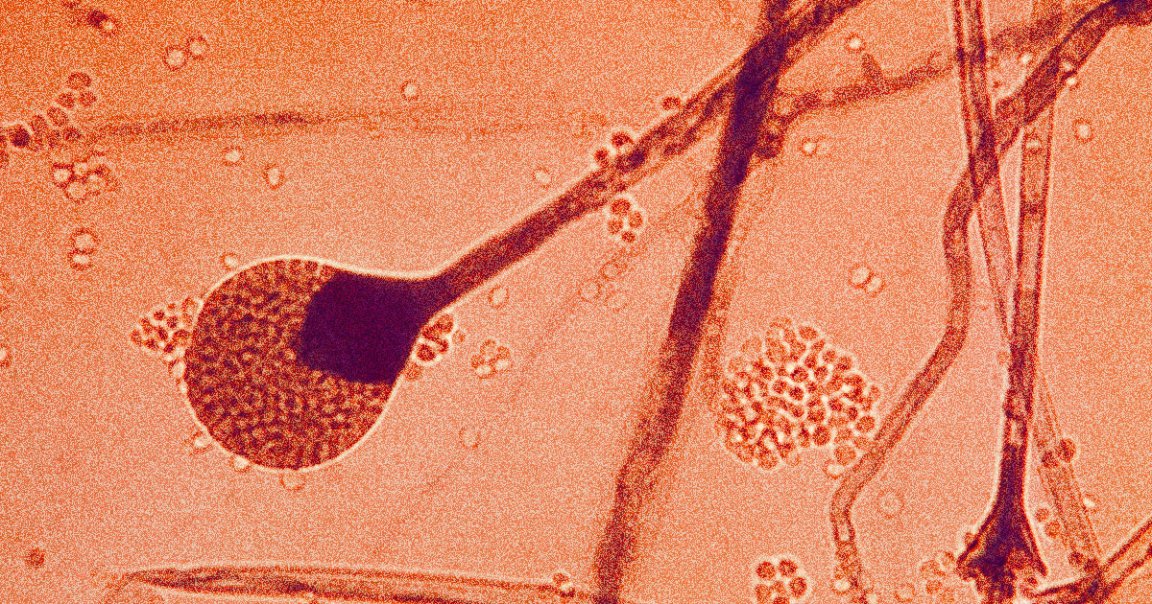
India, already in the midst of a catastrophic wave of COVID-19 infections, is now facing a dual health crisis: dangerous “black fungus” infections developing in recovered patients’ brains.
Typically, mucormycosis is an extremely rare infection caused when mold takes root in a person’s brain, lungs, or sinuses, The BBC reports. A healthy person’s immune system can typically fend it off — the actual fungus is surprisingly common — but India is now seeing a surge of infections among COVID patients and survivors — and doctors are struggling to save patients from the disease and its horrifying 50 percent mortality rate.
“We are already seeing two to three cases a week here,” Renuka Bradoo, the head of the ear, nose, and throat wing at Mumbai’s Sion Hospital told the BBC. “It’s a nightmare inside a pandemic.”
The problem appears to be is that doctors are treating severe coronavirus patients with steroids, which are life-saving in the moment but weakens their immune systems after the fact. That’s especially the case among people with diabetes, who make up a large percentage of India’s mucormycosis patients.
“Diabetes lowers the body’s immune defenses, coronavirus exacerbates it, and then steroids which help fight Covid-19 act like fuel to the fire,” Mumbai-based eye surgeon Akshay Nair told the BBC.
Nair says he treated 40 mucormycosis patients in April alone, most of whom either died or needed urgent surgical intervention like removal of an infected eye.
Experts seem to think that the coronavirus and the ways it’s treated are causing blood sugar levels to go haywire, exacerbating diabetic patients’ underlying health conditions and making them particularly vulnerable. But not every patient is diabetic, and there were way fewer cases mucormycosis cases during India’s first wave of COVID-19, leaving doctors and experts scrambling to find answers.